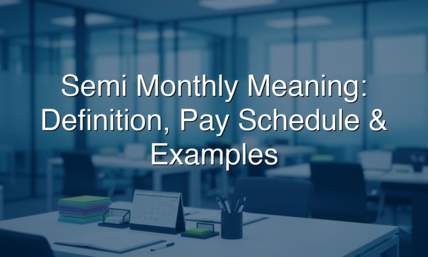The 9 Essential Basics That All Bookkeepers Should Be Aware Of
If you’re getting started in your bookkeeping career, knowledge is power! Here are some of the basics of being a bookkeeper that you should definitely be aware of.

Liabilities
Liabilities are basically what they sound like. They’re debts - they can be short term or long term. There are two main kinds of liabilities. The first kind is accounts payable, and these are payments that need to be paid to the company’s suppliers. It’s important that a bookkeeper is aware of these liabilities so that the payments can be processed in a timely manner. You also need to be aware of loans payable, which is an account that includes current and non current loans the business has. This type of liability encompasses when businesses take money out temporarily in order to pay for large purchases like properties or vehicles. These loans will need to be paid back, so it’s vital that you keep track of them.
Also read: How To Calculate Contribution Margin
Assets
One thing that you need to know about is assets. But what exactly are they?
If you have assets, they are tangible and intangible things that you possess right now. It’s the same for businesses. If you have intangible assets, these will be things such as goodwill and royalties. On the other hand, tangible assets encompass a number of different things.
First is a cash account. Cash accounts encompass the amount of money that the business currently has, both on hand or in bank accounts.
Next, you have marketable securities accounts. These are things that are the equivalent to actual cash, including bonds.
Accounts receivable are also a type of tangible asset. Accounts receivable is money that is taken from the customers of the business for any services or products that they buy or sign up for. These are especially important to track as invoices must be accurate.
There’s also inventory to consider. This is the stuff that you already have to sell that has yet to be sold to customers. Inventory is something that bookkeepers need to keep track of - it should be regularly monitored to ensure that nothing is missing.
You also have fixed assets, and these are things such as equipment and properties.
Also read: How to Save Money on Utilities
Single Entry Bookkeeping
There are two primary kinds of bookkeeping - single entry is one of them.This kind of bookkeeping is best for people that own small businesses or people that work alone and not under a company. It’s mainly for people that deal primarily in simple transactions.
In this case, any earnings will be noted down when they are incurred. Some extra documentation is also needed for this style of bookkeeping, like a cash sales journal, bank statements and cash disbursements journal.

Double Entry Bookkeeping
If your business has slightly more complex transactions, then it will need to utilize double entry bookkeeping. It doesn’t matter what size your business is, as long as you use complex transactions.
With this kind of bookkeeping, there will be a minimum of two kinds of transaction involved, typically credit and debit. A lot of bookkeeping software typically uses this kind of bookkeeping system.
Also read: What is Unearned Revenue?
Accrual Basis of Accounting
If a business provides customers with credit or they utilize credit for their own transactions with suppliers, the accrual basis of accounting is typically put into action. With this, any purchases and sales are noted down immediately. It doesn’t matter whether the cash doesn’t actually change hands yet - it’s still noted down.
Equity
You may have heard of equity before. If so, then you will know that it essentially refers to the division of ownership between the owners and investors in a business. Equity accounts encompass the claims that owners and investors in the company have, and this is reflected in the balance sheet.
It basically outlines the investments made in the company both by the owner and the investors. When you’re monitoring equity, you’re basically keeping track of how much investors and owners are donating to the company.
Also read: PPP Loan Forgiveness for Sole Proprietors
Cash Basis of Accounting
For small businesses or single person entities, the cash basis of accounting can be useful to utilize. With this form of bookkeeping, you essentially will just record any and all transactions as soon as cash is exchanged between two parties. You would typically use a journal to track both the cash receipts and the cash disbursements.
It’s also worth noting that in this case, the cash refers both to electronic and physical money transfers. In a lot of cases companies tend to choose to start their businesses with physical cash and then transfer to card payment systems.
Side Note - Balancing The Books
One thing that’s important to keep in mind is that there’s a certain formula that is followed when bookkeeping to work out the accounts. This is the following:
Assets = Equity + Liabilities.
This formula will allow you to keep the books balanced, so long as you’ve been keeping track of expenses to date.
Also read: Does Paying Off Credit Cards Help Your Credit Score?

Retained Earnings
Any bookkeeper will need to keep track of any of the company’s retained earnings. This is the amount the company profits after paying out expenses and paying to investors and owners. This money is earnings that have been made since the company first began. This information is often required by investors to keep track of company performance.
Income Statement
The balance sheet isn’t the only important thing in bookkeeping. A bookkeeper will also have to make an income statement. This document will show all of the expenses, incomings and the costs the business has.
The revenue is first covered on the income statement. This is basically any money that the business earns once they have sold a service or a product.
The costs include any money that was spent in order to provide the product or service.
Expenses encompass any money that’s needed in order to run the business as a whole, not just what’s needed to provide the services or products.
These items all need to be kept up to date.
Conclusion
By knowing all of this information, you’ll be a bookkeeping pro in no time. Good luck!
Using our pay stub generator you can ensure that you are receiving quality pay stubs on a regular basis.















